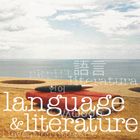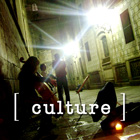
|
UNJUST RENDERING: REVERSING THE LIE OF AN OBITUARY AGAINST DERRIDA 20 December 2004 A great and resonant thinker dies, and a great and resonant newspaper publishes an obituary dismissing his work as destructive and "abstruse". It is an unjustifiable communicative travesty. When Jacques Derrida passed away, in October of this year, the New York Times wrote that his work was an attempt to undermine Western culture. The obituary was full of factual errors and infected with a hard-line bias against complex and rigorous thought... the facile and mistaken point of view that to distinguish between meaning and truth is to call for nihilist or morally bankrupt agendas in thought and politics... it failed to look at the work itself or the man himself and instead paraphrased poorly wrought critiques and conceptual gossip to try to discredit a monumental life of study in Western philosophy.
That complex and rigorous thought, involved in much of postmodern theory, which characterized Derrida's research and theory, has proven vital to extending human understanding in disciplines as diverse as science, literature and policy. The Times obituary railed against this level of self-conscious complexity, accusing Derrida of questioning the very right of Western thought to exist at all. It is as if the goal were to declare, against all evidence, that we are not living at this moment, after what has been seen and done, as if nothing had been learned from political history, as if the 21st Century did not exist... because postmodern is not a philosophy, it is an era, and one not easily defined. It is, however, also one in which the notion of unquestionable tradition is no longer tenable in any sense; too many crimes have been committed against history and against truth for anyone to accept that unquestioned tradition, disseminated from the top down, can stand as sole arbiter of truth. And, of course, this idea of critical analysis is quite clearly a central current in the evolution of Western culture as we know it and live it. Critical thought is vital to applying any idea, no matter how valid or universal, to a complex world. This obituary, meant to mark the passing of an influential thinker and scholar was so shockingly ill-informed a portrait of a life that it sparked a wave of written protest among colleagues and supporters, online and in letters to major newspapers. As one response noted, the logic of the obituary as printed would have dismissed the work of Einstein as irrelevant. His work was difficult, esoteric, even mind-boggling to some, and unique in that his greatest achievements solved problems he himself had invented (it was by extension obscure, "irrelevant" and difficult to put into practice)... but this did not reduce his contribution to the future of scientific thought and discovery, nor did it undermine the fullness of Western culture. Nor has Derrida's most intimate examination of the great ideas of that cultural tradition. One Harvard professor notes the outrageous suggestion made by the obituary's author that Derrida (a Jewish man) used logic that could extricate Hitler from the charge of anti-semitism... a pointless, fantastical assertion, made in extremely poor taste and not supported by the facts of the man's work or life. In fact, Derrida has been one of the leading figures of our times in resuscitating vigorous ethical thought to be applied to a world with increasingly blurred lines and mixed messages. Jacques Derrida was not a destructive thinker: his deconstruction is a productive, generative and regenerative philosophy that instead of abandoning the ideals of the Western canon, asks more of them, and more of us in pursuing them. He demanded, in his writing and in his lectures, a view toward truth that doesn't pretend to already have truth in some kind of metaphysical bear trap. Truth eludes the grasp of those who seek to define it. This does not mean that no religious thought, no moral or ethical thought, no legal order can be employed... it means one must commit to safeguarding them against abusive manipulation by fundamentalists who falsely assert that change does not exist. The most grave concern about the Paper of Record's handling of this important occasion is the apparent lack of regard for the truth, coupled with the willingness on the part of a major journalistic institution to engage the public with a patently vacuous and even maliciously wrong account of events, ideas and of a life. It speaks of a culture of administrative hubris where journalism and investigation have been brushed aside in favor of more pedestrian concerns, like circulation, "sexiness" or fashion. This may not be the culture at the Times, as such, but the unwillingness to read extensively into the background of an idea or of a complex investigative career, such as Derrida's, has come to prevalence as the news (as a machine) is driven ever more forcefully by televised sound-bites and glazed-over and mismatched clichés. It is much easier to assert that something that questions tradition is destructive that to comprehend how it serves to reinvent and enhance. In a roundtable discussion at Villanova University in 1994, Derrida noted that "bad journalists... [were] from the beginning a terrible problem for me..." because they promoted "this caricature, this lack of respect for reading." The philosopher goes on to add that "respect for the great texts, for the texts of the Greeks and of others, too, is the condition of our work." It is sometimes said that the thought of Derrida can be summed up with the idea that there is only the text, that all fits within some elaborate language play. This leads some opponents to argue that Derrida's deconstruction is an excuse to relativize all qualities or truths, to diminish the potency of accurate or dedicated scholarship. But this interpretation is wrong and its root is too simple: in the text, there is a making of reality and in a sense, what exists also records what made it, records the effort of what came before and the pressures that existed elsewhere, which shaped the pressures that existed in the emergence of what now presents itself... the "text" into which everything can be seen to fit is a kind of universal fabric which functions most fully in its most delicate and local of details; the text is what is and the record of what is and the language of what may be, but it does not exclude humanity, the individual or moral underpinnings. Derrida committed a great part of his scholarship to an elaborate and consequential study of ethical concerns: in no way does he dismiss the ethical in human interaction; in fact, he asserts that one must transcend the notion of the ethical contract and "give" beyond hope of recompense, to be truly ethical. He asks an impossible, because only there, in the exercise of a hope for the overcoming of all the many and likely flaws of egotism (there in that hope) does one locate the realm of ethical behavior. How can the conscious self transcend the conscious self? Scientifically, it seems we cannot, but ethically, it is the beginning of legitimate human engagement. Deconstruction prescribes an awareness of the interpenetration of influences and of meaning, be it directed or accumulated. Simplistic critics have said this leads to nihilism, in which nothing has meaning and nothing can be considered true, but this is not the aim of Derrida's work. Instead, he maintains that for meaning to be alive, for assertions about truth to be relevant and useful, they must adjust to the constant change inherent in natural and symbolic systems. Physicists have discovered that this is true of the natural world, that systems which cease to exchange information with their surroundings, die. This line of critical theory "deconstructs" these phenomena (humanity, the individual, moral underpinnings) as concepts, as constellations of intellectual resources, as conventions that play a role but do not convey absolutes... it is therefore vital to remember that this deconstruction is not an undoing; it is an examination, a road to explication, to the unfolding of implied, or hidden, or new meaning. So though the individual as idea can be probed and unfolded as a means to understanding what surrounds the human experience, it is not erased by deconstruction: in fact, through the complicated, ongoing, evolutionary pursuit of ethics inherent in Derrida's ideas, the individual is strengthened, given a role to play, asked to respond to the Other, to emerge from pretense and prejudice and to see into the other, at least in part as the other would have it. Applying Derrida's work, in this light, to political and cultural thought, we find a philosophy that reinvigorates democracy, ethics, artistic expression and even theology. Deconstruction makes it difficult to maintain a stagnant and inflexible dogma which never contemplates fact or circumstance, but it does not undermine one's faith in the existence of something beyond our reach... it actually posits that truth is very much like many theologians have described it: a fullness beyond the reach of the fullness of worldly circumstance, a clarity beyond the web of influences and ambitions that drives human events, perhaps even an impossible, but not, for that, a nonexistent. So Derrida wrote and spoke a lot... one would have to, in order to keep the dialogue open, which was his goal, after all. He was tremendously productive and pursued the new explications, the new affirmations in deconstructive analysis. He took on administrative roles, founded new schools and fora for the teaching and discussion of philosophy, promoted the idea of instilling both the study of the Western tradition of philosophy and of critical thought in younger students, to strengthen the intellect of our age, and asked difficult questions because he viewed it as an intellectual obligation. It is therefore particularly poignant and sad to see an ill-informed, morally aimless diatribe thrust out into the world of ideas as an attempt at usurping his life's work. What it proves, though, is the validity and necessity of Derrida's analysis of meaning and the communication and recording and reliving of it. Ultimately, the lie is irreversible: it exists, has been implemented, has flourished (dressed in the grey silk of journalistic legitimacy), but it does not and cannot outpace either the truth of the matter or the questioning that will extract the ripest meaning from the text. Yes, as Derrida would have noted, every utterance is affirmation, and the lie is now part of the text, but it is not Derrida's text; the lie does not belong to him, nor does it possess him. Moreover, it does not cast him in any responsible or sustainable light. His was a story of the quest to understand further; the lie is by contrast a hapless, unsuccessful attempt to declare things otherwise. In the face of such an unjust manipulation of fact, of history and of language, the central idea of deconstruction is made only more luminous and relevant: the honest thinking individual must embark upon a new kind of research, to get beyond the attempted closure of dialogue, to find the words that keep the conversation, the analysis, the study and explication alive... |
|||||||||||||||
|
||||||||||||||||







